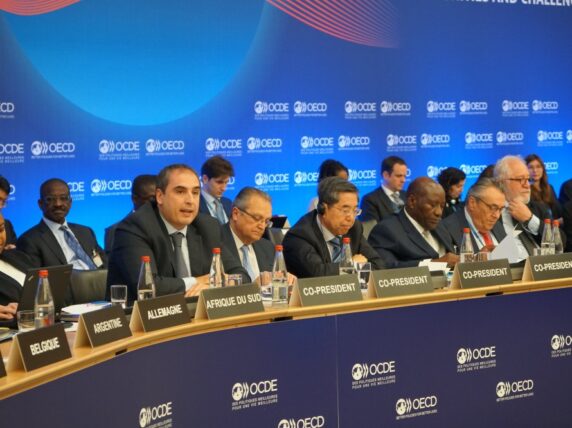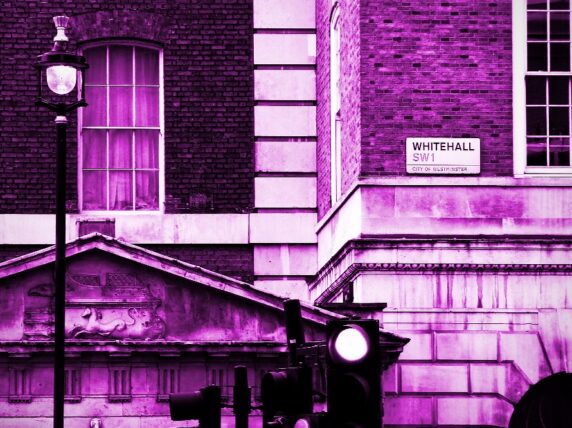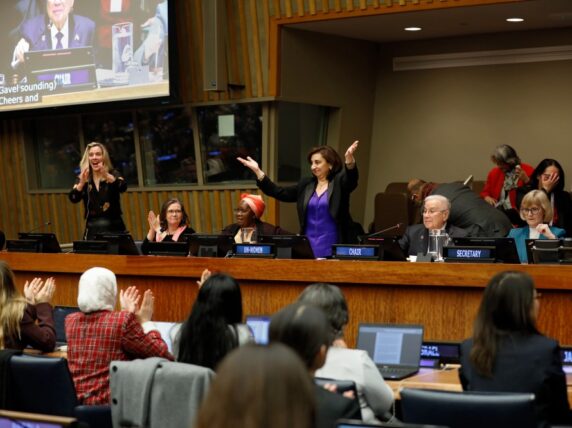7 things we want to see in 2021
2020 was a tough year.
The Covid-19 pandemic shook the world, killing millions and causing hurt and suffering across all nations. In the aftermath, countries are having to deal with growing economic and humanitarian crises, exacerbated by growing poverty and inequality. By the UN’s own projections, as many as 207 million people will be pushed into extreme poverty by 2030 due to the severe long term impacts of the pandemic.
In the UK, the political landscape for international development remains bleak as well, as the government attempts to cut the aid budget – a lifeline to millions in low-income countries.
But there is hope. 2020 has shown us that when governments are focused and aligned on a single goal, as they have been with the Covid-19 vaccine, the impossible becomes possible. And in a year when world leaders will meet in Glasgow to discuss the global climate crisis at COP26, this sort of international cooperation is not only called for, but desperately needed.
With that in mind, here are seven changes we would like to see in the new year.
Keep the 0.7% commitment
Dropping the Conservative manifesto commitment to spend 0.7% of our gross national income (GNI) on aid and development, amidst a global pandemic and looming climate crisis, is short sighted. It will leave millions to fall further and deeper into poverty, set back progress on ending world hunger, gender equality and climate adaptation.
Aid has a unique ability to reach the most vulnerable people living in the lowest income countries, it saves lives and builds better futures. 2021 should be the year to re-establish the UK as a global leader, hosting both the G7 and COP26, but the decision to drop the 0.7% commitment looks more like retrenchment than leadership.
Pegging the aid budget to GNI provides a built in safety valve as the available aid budget grows and shrinks with the economy. In 2020, the Government cut £2.9 billion from the aid budget because of the economic ramifications of the Coronavirus pandemic. Dropping the commitment to 0.7% would amount to a double cut, which is projected to reduce the aid budget by as much as £5 billion. This will only hurt vulnerable and marginalised communities around the world. In 2021 it is vital that the government keep their commitment to the most marginalised communities around the world, as well as the British public, and retain the 0.7% target they were elected on.
Poverty focused aid
2020 was a really challenging year for UK aid. Back in the summer, the government unilaterally announced that they were “merging” the Department for International Development before the conclusion of the Integrated Review, and with no consultation. At the time, Bond and members had grave concerns that the new Foreign, Commonwealth, and Development Office (FDCO) would dilute the focus on development, poverty alleviation and the sustainable development goals. And we will be monitoring the FCDO’s performance on these critical issues closely through the year.
It’s not just the quantity of aid that matters. Keeping the commitment to 0.7% is crucial, but so too is ensuring that UK Aid is spent on the right things: poverty alleviation and achieving the sustainable development goals.
Subscribe to our newsletter
Our weekly email newsletter, Network News, is an indispensable weekly digest of the latest updates on funding, jobs, resources, news and learning opportunities in the international development sector.
Get Network NewsAny decisions about how aid is spent must be based on rules, values and need. Even if the 0.7% commitment is maintained, the amount of aid available will decline if GNI falls further. With a reduced aid budget, it is critical that all UK aid must directly reach developing countries, and the communities and individuals in those countries who need it most.
Strong climate commitments at COP
2021 will be a key year in the fight against climate change, with less than a decade left to take the action needed to limit global temperature rise to 1.5°C, the goal agreed in the Paris Agreement.
As Boris Johnson acknowledged when the UK took on the COP presidency, as the country which led the industrial revolution, the UK has a responsibility to lead the just transition to a zero-carbon world.
The targets set by governments globally to cut their own emissions are not enough to prevent dangerous climate change. As COP26 President, the UK must use all its diplomatic weight and experience to drive change and close the gap between existing Nationally Determined Contributions (NDCs) and the action actually needed to limit global temperature rise to 1.5 °C. The UK’s NDC target of “at least 68%” reductions by 2030 compared to 1990 levels, is a good first step, however there is evidence that the UK can go further and faster, and must. The abandoning of all UK investment overseas in fossil fuels is another good step forward.
We will also need to see a global scaling up of financial support to poor and vulnerable communities to help them adapt to climate change and manage the loss and damage caused.
Finally, it means massively increasing support for nature-based solutions, which will help to achieve net-zero emissions globally, whilst restoring the Earth’s precious ecosystems and biodiversity on which we all rely for food, water, clean air, and medicine.
Strong commitments at the G7
As hosts of the 2021 G7, the UK has a critical opportunity to set the joint international agenda for the world’s wealthiest countries, as well as make transformative commitments that will support a sustainable, inclusive, equitable and human rights-based recovery from Covid-19.
We would like to see this aligned with ongoing policies to advance the Sustainable Development Goals (SDGs), promote economic, social and environmental justice, and prioritise the welfare of the most excluded and left behind. Actions taken by the G7 must also take the priorities of less wealthy and more marginalised countries as their base line.
Help the civil society sector survive
It has been a difficult year for civil society with public fundraising dropping, £2.9bn cuts to the UK aid budget, and now a potential reduction of ODA from 0.7% to 0.5%. Many organisations are struggling financially, with 48% of Civil society organisations (CSOs) saying that they won’t survive the next two years. Smaller organisations have been hit particularly hard by the Covid-19 crisis. It is expected that, without government, support over half will fold.
Civil society is worried that the cuts to the aid budget and a difficult financial operating environment will impact those communities most in need. Despite cuts to funding, the demand for CSOs services has increased. Civil society is having to do more with less, while worrying about their own longevity and their capability to continue to support the communities that they work in.
Charities working internationally are not eligible for the government support for civil society that was announced in April 2020, and so, in 2021, we will continue to push the government to provide support to the sector and increase funding so that we can help those communities suffering the most from the fallout of the Covid-19 pandemic.
Civil society space and the right to campaign
Civil society campaigning is a fundamental part of our democracy, amplifying the voices of those who are marginalised and holding the powerful to account. However, the pandemic has presented campaigners in the UK and around the world with immense challenges.
Unprecedented restrictions on freedom of association and assembly have made it harder for people to come together and take collective action. Yet, at the same time, campaigning by individuals and organisations has brought about important policy changes, which have made the pandemic response more inclusive and effective.
This year, the UK government must ensure it respects and adheres to existing commitments, standards and principles. It must also take more principled, strategic and effective action to protect and promote civic space both here in the UK and around the world, including through key international events and processes such as the G7.
Clear commitments on the SDGs and Leave No One Behind (LNOB)
The impact of the pandemic only heightens the need for increased action by the global community towards achieving the SDGs by 2030 and delivering on the commitment to Leave No One Behind. It was good to see the Foreign Secretary recognise the important role UK ODA plays in helping to achieve the SDGs last year when he outlined FCDO’s new ODA framework.
However, there is a need for much greater clarity on how the new framework will strengthen the UK’s approach to SDG implementation, promote policy coherence and ensure it abides by its promise to Leave No One Behind.
The UK government played a central role on the global stage in developing the SDGs and, back in 2019, delivered its first Voluntary National Review (VNR) of its progress against the SDGs at the UN. However very little progress has been made on these commitments since then. This year the government must take immediate action to deliver on the commitments made in the 2019 VNR and commit to a second VNR in 2022.




